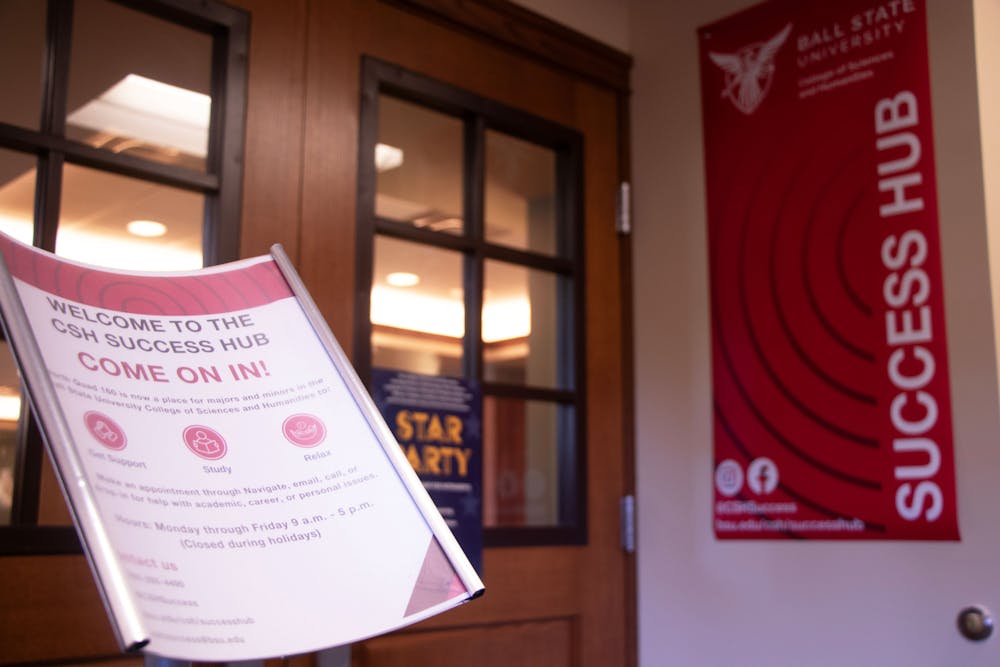Two years ago, Ball State administration created a task force to address student retention and overall success, finding ways to support beyond just their academics. One of the results is the implementation of Student Success Centers within the university’s colleges.
“There is a student success revolution happening in higher [education],” Patrick Collier, associate dean for the College of Sciences and Humanities, said. “I didn’t hear the phrase student success until four, maybe three years ago … It really is a recognition that, if we admit students, we have a moral responsibility to give them every possible chance to get out of here with a degree.”
This year, the university requires all colleges to have Student Success Centers, but each is allowed to determine what that means. All, however, share a common goal: figure out the best way to help students in their respective colleges succeed.
These centers act as a hub for directing students to campus-wide resources with the Financial Aid Office, the Career Center, the Health Center to help them be successful throughout their college careers. Collier emphasized the role of helping students navigate their available resources for what they need.
“The main thing we exist for is to be the place where you can come and we will get you the answer,” Collier said. “If we’re not the person who can fix your problem, we’ll put you in front of that person.”
The centers are also helping students build relationships and make connections with people and resources on and off campus.
In the Miller College of Business, there is an emphasis on providing professional mentors or working with the Entrepreneurial Learning Institute, an online education and training program for business students, to do self-assessments.
Melisa Stevens, the Director of Student Retention and Success for the College of Sciences and Humanities (CSH), said they have focused on interpersonal support.
“Students in this generation … they often don’t know what they need help with,” Stevens said. “They just know they have a problem. So trying to normalize help-seeking behavior and showing that that is a sign of strength I think is really important for us.”
While still early in the process of setting up their center in the College of Fine Arts, Stephanie Haglund, their Director of Student Success, wants to eventually use the space for events and a lounge space for students.
She said creating a space to meet the needs of students is most important. She noticed there was nowhere for students to hang out and relax in between classes in the Fine Arts buildings and that students were often seen sitting on the floor.
She is currently in the process of planning out two lounge spaces in two different buildings. Meeting these kinds of needs are what she believes is part of helping drive student success.
“We are truly student-centered [and] student-focused,” Haglund said. “[We] want to see students not only survive college but really thrive.”
Joel Whitesel, director of student retention and success for the Miller College of Business, said there are many factors that may cause a student to struggle and even decide to not continue their education.
“College is hard,” Whitesel said. “And knowing you have a team of folks whose mission is to make sure you succeed is so important and I love that it’s spread across the campus.”
While every college has its own goals for what it wants to see from its students, increased student retention, student confidence and job placement rates are common themes. As part of the Student Right-to-Know Act, Ball State publicly reports these numbers on their Student Consumer Disclosureswebpage.
Haglund hopes students see the hubs as genuine, rather than just a way to increase statistics.
“I hope it is seen by the students as not just a ploy to keep students here, but that the institution itself really cares,” Haglund said. “People in these positions truly care about students and want to do whatever we can to help each one be successful.”
Contact Megan Rogers with comments via email at megan.rogers@bsu.edu.


